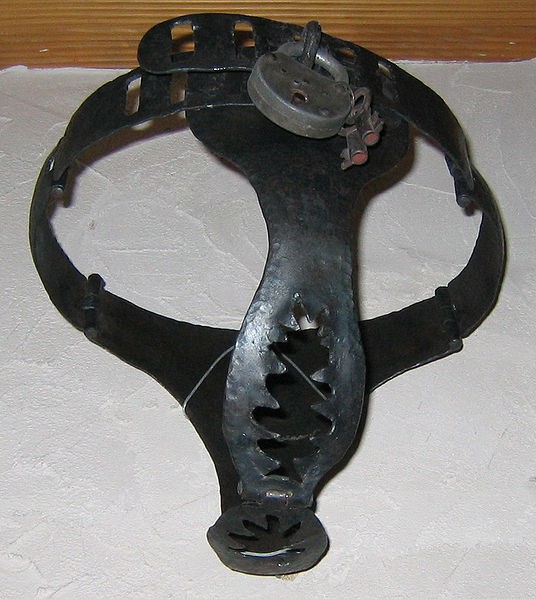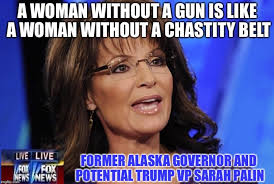John McCain, a Vietnam War veteran, a “real gentleman”, and “an American hero”, was laid to rest on Saturday. Since he passed away a week ago the previous Saturday, the media has been awash with eulogies and celebrations of his life. In a ‘bitterly divided Washington’—an argument sensible only to those who are strongly of the view that Democrats and Republicans are from different planets, or at least have very little in common, never mind their shared love for unvarnished capitalism, gun culture, military prowess, and much else—what the Americans call “bipartisanship” has always been spoken of as some desirable objective, and the adulatory tone that has been adopted throughout the last few days in writing about McCain owes much to the fact that he spoke, or is alleged to have spoken, to those across the aisle. Yesterday’s Los Angeles Times’ headline read, “Farewell to John McCain transcends partisanship.” “A Rare Moment of Unity Inside the Capital”, noted the New York Times as it recounted the “dignity, seriousness and respect” with which the deceased senior senator from Arizona was remembered in the Capitol at a time when these qualities are “so lacking in American politics.” The same newspaper described him as a “towering statesman”, though the article in question offers barely any hint of what made him either “towering” or even a “statesman”. One hopes that the definition of a statesman in the United States of America has not been reduced to “a public figure who is quite unlike President Donald J. Trump.”
It is entirely possible, indeed probable, that John McCain was in private life everything he has been described: a devoted husband, a father who got along famously well with his children, a man who remembered his friends and was generous in spirit, and someone who acted with civility most if not all of the time. These are all doubtless admirable qualities and one presumes that McCain will be remembered with affection and fond memories among those who knew him. He would not be the first person, however, to be in the possession of such qualities. It is instructive to remember that the hundreds of thousands of German men implicated in the work of the Nazi regime were perfectly good fathers: in fact, most of them came back after a hard day’s work to share food, prayer, and Christian thoughts with their family at the dinner table. Since McCain was an eminently political figure with a long history of public service and is among a few dozen people in the history of the US who has been honored with what is a state funeral, it behooves us to ask what it implies for a man such as him to have been practically raised to the level of a saint. McCain has been buried; but if the United States, still a young country (if the oldest constitutional democracy), hopes to arrest its precipitous decline into senescence, it would be best if it digs up a few questions, sooner rather than later, about him.
I shall not call this article “The John McCain you never knew”. Everything I have to say is a matter of public record; one need not search for state secrets, or resort to the Freedom of Information Act. It is important to state as well that this critique shares absolutely nothing in common with the remarks against McCain by the trolls who form part of Mr. Trump’s “base”. It is well and good that McCain stood up to Trump, though here again this argument is only a profound testament to the fact that the bar for any kind of ethical political life has shrunk so low that even the remotest resemblance to anything that might be called ‘decency’ or ‘civility’ is supposed to signal ‘virtue’. I can barely think of anything that endears McCain, a public figure, to me; but I can think of a great many things that make the present spectacle of the celebration of a ‘great American life’ nauseating.
It was a life full of shenanigans, but here are a thoughts. First, it is an indisputable fact that McCain, in common with the preponderant number of his soulmates in the US Senate, was relentlessly hostile to the working class. By the standards of this country, where a ‘socialist’ is in many places something akin to the Black Death, McCain may not have been a die-hard conservative of the Storm Thurmond or Barry Goldwater variety, but it cannot be doubted where his sympathies lay. He waffled for many years on the question of abortion, but did nothing to put into question the position he finally adopted in 2007 when he said, “I do not support Roe versus Wade. It should be overturned.” He then supported a constitutional amendment that would bar abortion except in cases of risk to mother’s life, incest, and rape. His conservative credentials were never in doubt; however, it is his persistent efforts to overturn the federal minimum wage that point to his disdain for the ‘common American’ whom he supposedly championed. McCain voted on 24 January 2007 to support legislation that would allow employers to pay less than the federal minimum wage if a state set a lower minimum. Similarly, McCain joined the filibuster to prevent the federal minimum wage being increased from $5.15 to $7.25 an hour. Throughout, he remained a foe of the federal minimum wage—and we can imagine what he would have thought of the idea of minimum livable wage, or the notion of Universal Basic Income.
Secondly, it should be recalled that McCain was consistently opposed to the idea of federal holiday in honor of Martin Luther King, Jr., and he went so far as to support the Governor of Arizona when he decided to rescind the holiday in his state in 1987. McCain would, in time, come to repent of his decision and eventually called for both a state and a federal holiday to mark the life of one of the greatest figures in American history. He issued this apology in 2008, “I was wrong and eventually realized that, in time to give full support for a state holiday in Arizona. We can all be a little late sometimes in doing the right thing.” I have written elsewhere, and on many occasions, on this wonderful expedient of a belated apology that has characterized white civilization’s attitude to the other races: say you’re sorry, and then throw another bomb to civilize the savages or bring them the blessings of democracy. We may perhaps infer McCain’s sentiments on this question from his refusal to call for the removal of the Confederate battle flag from the South Carolina Statehouse when he was campaigning for the state’s Republican presidential primary against George W. Bush. He called the flag “a symbol of heritage” and objected to Federal encroachment on states’ rights in these matters. McCain lost the primary, and what does one suppose he did thereafter? He apologized, what else: stating that he had equivocated on the flag issue, McCain said: “I feared that if I answered honestly, I could not win the South Carolina primary. So I chose to compromise my principles. I broke my promise to always tell the truth.”
Thirdly, among those who served in either house of the Congress over decades, John McCain must be counted among those who were hawkish in the extreme. He was, needless to say, an ardent advocate of the war on Iraq, a war-monger who turned to the neo-cons Robert Kagan and William Kristol for advice on American military intervention. It is not an accident that the mammoth $716 billion defense appropriations bill that Trump signed into law barely three weeks ago is formally named the John S. McCain National Defense Authorization Act for Fiscal Year 2019. McCain’s acolytes and admirers trumpet the fact that, in signing the bill, Trump refused to mention it by its formal name. Trump’s meanness is thus established, but of course we are to think nothing of the fact that McCain took pride in having the bill named after him. With single-minded intent, McCain for decades advocated for one, and only one, position—namely, that the United States should continue to remain unrivaled as a military power. It would never have occurred to him that no one country should have such power: if circumstances should turn China into such a power, then one would be duty bound to oppose China. This view would have struck McCain as implausible since he had neither the intellect, nor the capacity for self-reflection, to adopt a critical perspective on the course of American history.

Finally, McCain’s admirers and all those who now swear by him, often for no other reason that he was (to return to an earlier argument) not Donald Trump, should ask what role McCain played in bringing his nemesis to power. It is a curious but pertinent fact that his running mate during the Presidential race in 2008, Sarah Palin, was also not invited to the funeral ceremonies which McCain had himself planned in meticulous detail. (Narcissist would seem to be the operative word to describe one who had decided upon a magisterial state funeral for himself, notwithstanding his unenviable record of constantly striving for, but never achieving, the highest office of the land, but I fear that the followers of neither Trump nor McCain will tolerate this comparison.) That McCain should not have invited his vice-presidential pick, more so when he congratulated himself for anointing a woman to fill the second highest office in the country, for his funeral ceremonies is puzzling if not astounding. McCain had gone on record in recent months, expressing “regret”—no surprise, since McCain’s entire life can be written in this vein—that he had picked Palin, rather than Joe Lieberman, for his running mate. McCain doesn’t specify exactly why he regretted his decision, but it had to do with more than the fact that Palin was not even remotely an asset for him. Perhaps McCain had come to the realization, quite late in his life—yes, here again that pattern of late recognition, long after others had reached some degree of enlightenment—that in legitimizing the Tea Party—and Palin was nothing if not the Tea Party—and the lunatics who have come to dominate American politics, he had played a substantial role in birthing the political rise of Trump.
John McCain believed profoundly in American exceptionalism. The best that can be said for him is that, as a member of the US Congress over several decades, he led a life of exceptional mediocrity and mendacity.






 American feminists and women’s organizations have rightfully expressed alarm at the looming erosion of women’s rights, and in particular women’s reproductive freedoms, under a Trump Presidency. The sexual profligacy of Donald Trump, who even hinted that he would have made a stab at his daughter if she were not his daughter, should at once remove the slightest suspicion that anyone might have that the President-elect would like women to be decorous. He may like, one suspects, women to be the playthings of men, but he is no advocate of the view that women should be chaste. The same cannot be said of his Republican allies in Congress, whose views on abortion I discussed in a previous blog and who, it would not be too much to say, certainly think that some women—black women, Latinas, poor women, working-class women, Muslim women—should regulate their sexuality. The metaphor of the ‘chastity belt’, nowadays a sex toy but in its heyday an instrument for ensuring that women did not step out of bounds and remained available to their husbands, was brought home to me when I stumbled upon this gem from Sarah Palin, another wondrous specimen of American political comedy:
American feminists and women’s organizations have rightfully expressed alarm at the looming erosion of women’s rights, and in particular women’s reproductive freedoms, under a Trump Presidency. The sexual profligacy of Donald Trump, who even hinted that he would have made a stab at his daughter if she were not his daughter, should at once remove the slightest suspicion that anyone might have that the President-elect would like women to be decorous. He may like, one suspects, women to be the playthings of men, but he is no advocate of the view that women should be chaste. The same cannot be said of his Republican allies in Congress, whose views on abortion I discussed in a previous blog and who, it would not be too much to say, certainly think that some women—black women, Latinas, poor women, working-class women, Muslim women—should regulate their sexuality. The metaphor of the ‘chastity belt’, nowadays a sex toy but in its heyday an instrument for ensuring that women did not step out of bounds and remained available to their husbands, was brought home to me when I stumbled upon this gem from Sarah Palin, another wondrous specimen of American political comedy:
